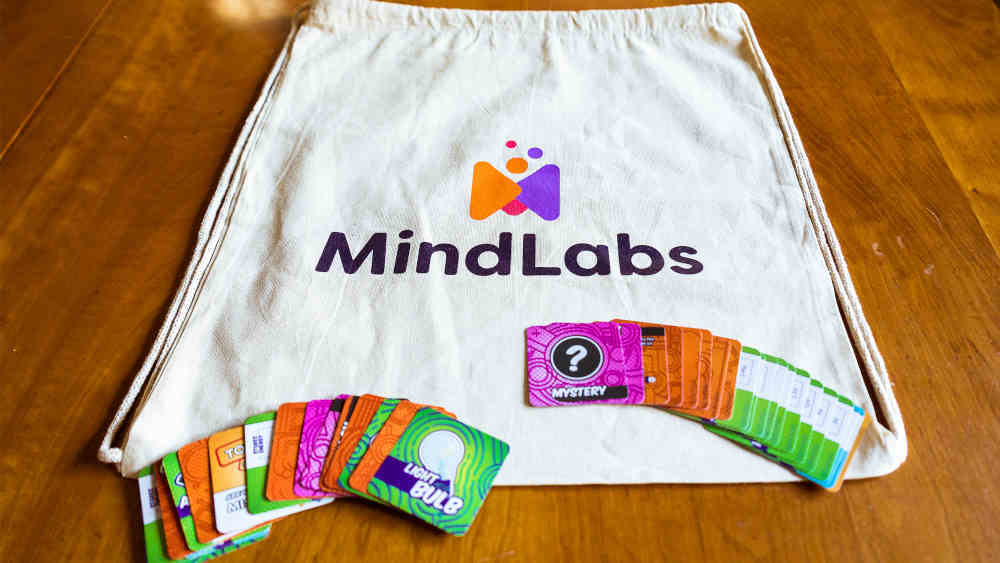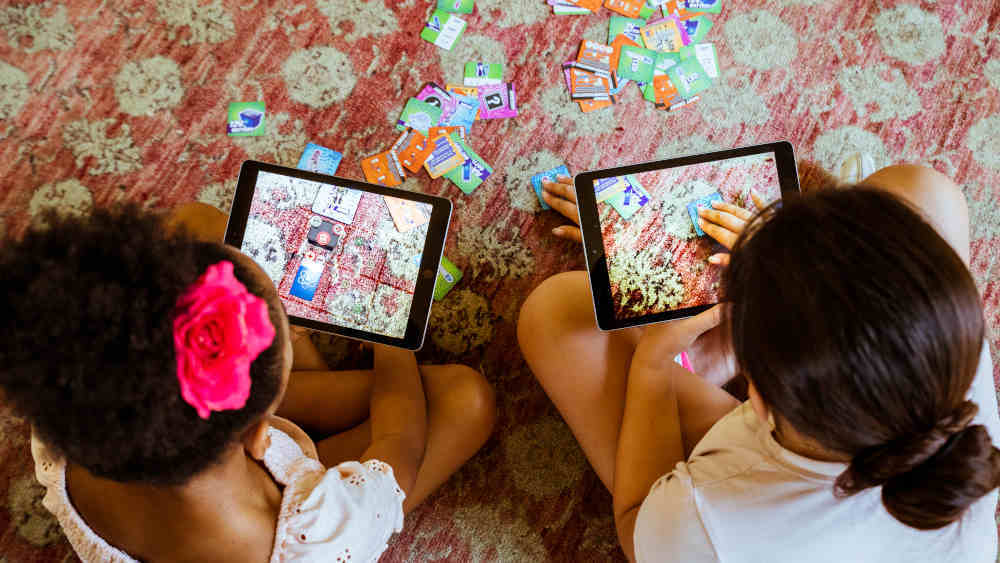
Although she wasn’t originally familiar with engineering or the career paths associated with it, it was through her high school teachers that she learned of her strong calculus, chemistry and physics skills.
“To be honest, when I decided to go be an engineer, I thought, ‘I don’t know what that is,’ but I looked into it because my physics teacher said, ‘with your math skills, you should be an engineer,’” Thompson said.
Now, she is hoping to spark that same interest by making STEM learning fun and applicable for elementary aged students.
Thompson joined Explore Interactive as a co-founder in 2018, with the goal of using augmented reality (AR) to bring interactive, highly visual and hands-on science and engineering experiences to elementary aged children through MindLabs, a series of tabletop games coupled with an augmented reality mobile app aimed at driving self-efficacy and interest in STEM (science, technology, engineering and math) in elementary aged students.
“There are a lot of things, like electric currents, for example, that young students can’t see, can’t directly observe. They can see the result of it, but they can’t see it happening,” Thompson said. “That abstract learning is hard for them, and so AR can bring visualization to those concepts."

MindLabs is made up of curriculum units for the students to follow, and an augmented reality game, the actual digital component, making this a great learning option during the COVID-19 era.
MindLabs is for the parent who is looking for more self-driven learning opportunities at home for the child parallel to school, and for the teacher delivering the lessons in a school setting.
Since an elementary school student’s brain has not developed enough to understand concepts it cannot visualize or interact with, the goal of MindLabs is to bring those problems to life with the use of a game and augmented reality. Making these problems fun and interactive also helps garner interest in STEM with younger students, Thompson said.
Thompson believes that among the growing options with technology, augmented reality is among the most compelling and effective, particularly in the classroom.
Existing STEM activities can be difficult to set up and clean up, which can create a difficult experience for both parents and teachers. There is a lot of planning ahead, and many materials involved, so there is potential for something to break or get lost.
To mitigate these issues, MindLabs games include a card game and app, or augmented reality segment, providing a much easier setup process for teachers and parents. This enables the students to work through problems and activities that are closely correlated with physical builds, but doesn’t include the time and energy associated with setup.
Facilitators can guide conceptual understanding even deeper with corresponding curriculum, or as a free choice activity for the students, where it’s possible for the students to play through on their own. Another challenge Thompson and Explore Interactive have identified is the difficulty teachers have figuring out how to deliver these concepts to young students.
“Most of (the teachers) would not have said that ‘engineering is my skill set’ right when they went into teaching,” Thompson said. “We want to make this material easy to use, and to teach, as well.”
The feedback Thompson has received through classroom studies shows that these students are learning and building confidence when they work through the game, and many end up coming away with more science vocabulary and conceptual understanding of the content they just worked through. And kids can learn STEM concepts while having fun.
“Hopefully after this they can, you know, go take a flashlight apart and think about why it’s not working, and fix it. Or, mess with their Christmas lights and understand that if one’s burnt out then it’s not a complete circuit,” Thompson said. “Every experience at that age helps them decide, ‘Am I capable of this? Would I like to do this?.’”
She hopes to influence the answer to this critical question as “Absolutely!”